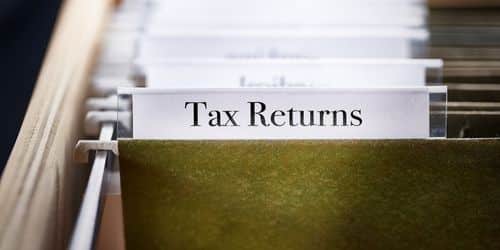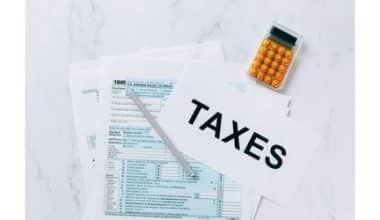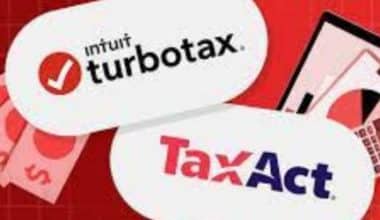We all know the importance of keeping our tax records, but how long should we keep them? This is a common question that many individuals, as well as business owners, have. The question is more complicated than it may seem at first. In this blog, we will answer this question in detail and help you understand the various rules and regulations that govern how long you should keep your tax records.
Tax records are essential for filing taxes and providing evidence of income, deductions, and credits. In some cases, the records must be kept for years for tax filing purposes. The Internal Revenue Service (IRS) requires taxpayers to keep certain documents for a minimum amount of time, depending on the type of document. Knowing how long to keep tax records is important for staying compliant with the law and avoiding penalties.
How Long Should You Keep Tax Records?
In most situations, you should keep tax records and any supporting documentation for at least three years after the date you filed or the due date of your tax return, whichever comes first. Here’s how long you should keep records, as well as several exceptions to the three-year guideline.
Keep tax records for three years if you:
- There was no fraud, and all money was recorded.
- You requested a credit or refund after filing your return.
Keep tax records for four years if:
You keep employment tax records. Keep these for at least four years after the tax is due or paid, whichever comes first.
Keep tax records for six years if:
Your income could have been underreported by 25%. If this is the case, the IRS has the authority to examine your tax returns from up to six years ago.
Keep tax records for a period of seven years if:
- You made a claim for a loss resulting from worthless securities (such as losing stocks or bonds) or a bad debt.
Keep tax records permanently if:
- You bought property, therefore you can display how much you spent for it at the time.
- You do not file an annual tax return.
- You filed a false tax return.
What Tax Records Should I Keep?
You should maintain all tax returns and supporting documents. W-2s, 1099s, expenditure tracking, mileage logs, records proving itemized deductions, and other documents are included.
Why It Is Important to Keep Tax Returns for Three Years?
Here’s the reason why maintaining tax returns for three years is critical…
The IRS statute of limitations dictates that tax returns be kept for three years. If you do not file a claim for a refund that you are entitled to, you normally have three years from the date you filed the original return or two years from the date you paid the tax to file the claim, whichever is later. Similarly, the IRS has three years from the filing date or due date of the return (whichever is later) to assess an extra tax.
Is the Tax Record Rule Subject to Exceptions?
In rare situations, you may be required to keep your records for more than three years. For example, you should maintain tax paperwork for retirement accounts such as IRAs for seven years after the account is totally depleted. You must preserve records for seven years if you file a claim for a loss of worthless securities or a bad debt deduction. Furthermore, if you amortize, depreciate, or buy or sell property, you must retain property records until the statue of limitations for the year in which the property is disposed of ends. Remember that property encompasses more than simply land and buildings; it also includes stock, office equipment, and other assets.
It’s also worth noting that the statute of limitations in some circumstances is more than three years. For example, if you fail to report more than 25% of your gross income, the IRS has six years instead of three to levy an additional tax. Furthermore, if you file a fake return or fail to file one at all (which we do not advocate), the statute of limitations never ends.
When Should You Throw Away Tax Documents?
Before you get too thrilled and throw away your old returns, make sure you don’t need them for anything else. Certain creditors, and even some insurance companies, may require you to preserve records for a longer period of time than the IRS. If you do decide to get rid of your tax paperwork, shred them first. Identity thieves enjoy tax returns because they contain sensitive information.
What is the Best Method for Storing Documents?
A fire-proof safe is the finest place to keep physical copies of tax paperwork. Along with your tax records, retain other vital documents such as your house deed, mortgage and insurance information, will or trust agreements, and passwords to bank and brokerage accounts. It’s also a good idea to tell at least one other person where you keep the safe key. This way, if an emergency occurs, that person will be able to access any documents they may require to maintain your affairs in order.
Finally, if you intend to maintain your records for an extended period of time but don’t want your home to get cluttered with paper, consider scanning your documents and storing a backup of the information on an encrypted hard drive or in the cloud. As long as the digital versions are legible, the IRS will accept them. Unlike a stack of papers, this method takes up significantly less room and is much easier to arrange.
The Benefits and Drawbacks of Digitally Storing Your Tax Records
Keeping tax records used to be more of a hassle than it is now.
Many people have decluttered their offices and now digitally save their documents. Many institutions also provide digital versions of tax forms, decreasing your tax paper trail even further.
In addition to minimizing paper, storing your tax records and receipts online or in the cloud can be convenient—but make sure your online storage provider encrypts your data so a cybercriminal can’t readily obtain your Social Security number or other easily identifiable information. You may secure your files and folders by encrypting them.
Documents should be scanned, stored, and backed up whenever possible. You may dispose of the paper copy at your leisure, as long as it is not an original deed, title, appraisal, or investment document. Keep your (e-)documents safe.
The IRS keeps a record of your prior tax returns. A transcript can be requested online, via phone, or by mail. The tax department will want identification, including your Social Security number.
Read Also: EMPLOYMENT RECORDS: Types and How To Keep Them
What Documents Should You Keep Forever?
There are some documents that you should keep forever. These include important documents such as birth certificates, marriage certificates, and Social Security cards. It is also important to keep documents related to the purchase of a home, such as the deed and mortgage documents.
In addition, you should keep records of major purchases, such as cars and appliances, for as long as you own the item. This is important for tax purposes, as well as for insurance claims and warranties.
What Records Must Be Kept For 10 Years?
The IRS requires taxpayers to keep records for at least ten years for certain types of income. This includes records related to capital gains, such as stock sales, and business income and expenses. You should also keep records related to retirement accounts, such as contributions and distributions, for at least ten years.
What Is The IRS 6-Year Rule?
The IRS 6-year rule is a rule that states that the IRS can go back and audit a taxpayer’s return for up to six years if there is evidence of underreported income. This means that taxpayers should keep records of income, deductions, and credits for at least six years to ensure they are in compliance with the law.
Can Taxes Be Collected After 7 Years?
The IRS can collect unpaid taxes for up to 10 years. This is known as the 10-year statute of limitations. After the 10-year period has expired, the IRS can no longer collect taxes from taxpayers. However, the statute of limitations does not apply if the taxpayer has committed fraud or failed to file a tax return.
What Happens If You Don’t Keep Tax Records?
If you do not keep tax records, you may face penalties from the IRS. This includes a 5% penalty for not filing a tax return or failing to pay taxes on time. Additionally, the IRS may assess interest on unpaid taxes. It is important to keep accurate and complete records so you can avoid these penalties.
What Tax Documents Need To Be Kept?
The most important documents to keep are tax returns, W-2s, 1099s, and any other documents related to income, deductions, and credits. Additionally, you should keep records of any major purchases or investments. It is also important to keep documents related to retirement accounts and business records.
How Long To Keep Tax Records After Death?
Tax records should be kept for at least three years after the taxpayer’s death. This is important for estate planning and for filing the final tax return. Additionally, the executor of the estate should keep records related to the sale of assets and distributions to heirs for at least three years.
Conclusion
Knowing how long to keep tax records is important for staying in compliance with the law. Most records should be kept for at least three years, while some documents should be kept for up to 10 years. It is important to keep accurate and complete records to avoid penalties from the IRS.
To summarize, you should keep tax records for at least three years. Some documents, such as records related to capital gains and business income, should be kept for at least 10 years. Additionally, records related to major purchases, investments, and retirement accounts should be kept for as long as you own the item. Finally, records related to the sale of assets and distributions to heirs should be kept for at least three years after the taxpayer’s death.
Keeping accurate and complete records is essential for filing taxes and avoiding penalties from the IRS. By understanding how long to keep tax records, you can ensure that you are compliant with the law and avoid any potential penalties.
Related Articles
- BUSINESS EXIT STRATEGY: Things You Should Know
- SAFEST STOCKS TO BUY: Long-Term Safe Stocks to Buy in 2023
- RECORDS MANAGEMENT SYSTEMS: Best 15 Software Options In 2023
- CORPORATE RECORD BOOK: Meaning, Importance & How to Get It
- RULE OF 72:Meaning and Formula






